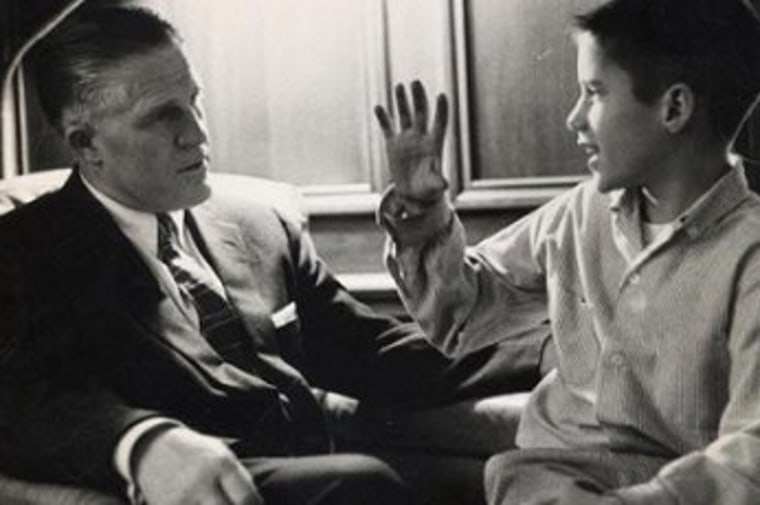Mitt Romney has spent the last couple of weeks desperately trying to prove to Michigan Republicans he has deep, meaningful roots to the state, as evidenced by his love of the state's tree heights. These efforts, however, can occasionally go too far.
For example, the former Massachusetts governor shared a cherished childhood memory last week with a Michigan audience, which Mitch Potter noted, Romney did not witness in reality.
Romney recalled he was "probably 4 or something like that" the day of the Golden Jubilee, when three-quarters of a million people gathered to celebrate the 50th anniversary of the American automobile."My dad had a job being the grandmaster. They painted Woodward Ave. with gold paint," Romney told a rapt Tea Party audience in the village of Milford Thursday night, reliving a moment of American industrial glory.The Golden Jubilee described so vividly by Romney was indeed an epic moment in automotive lore. The parade included one of the last public appearances by an elderly Henry Ford.And it took place June 1, 1946 -- fully nine months before Romney was born.
In fairness to Romney, this may not have been a deliberate effort to deceive the public. Children hear family stories and see photographs, and the occasional result is a false memory.
The problem for the Republican presidential hopeful, though, is the larger pattern, which makes it more difficult to give Romney the benefit of the doubt.
Indeed, there was a similar incident in his last presidential campaign, when Romney assured voters he remembers having seen his father march with Martin Luther King Jr., when in reality, that never happened.
If Mitt Romney had earned a reputation as an honest, straight-talking candidate who could always be counted on to tell the truth, slip-ups like the bogus Golden Jubilee claim could be easily overlooked, even by critics. But therein lies the point: Romney has actually earned the opposite reputation -- his deliberate falsehoods come so frequently that it's a challenge just to keep up with them. As Paul Krugman put it a few days ago, Romney "is running a campaign of almost pathological dishonesty."
It's against this backdrop that Romney wants voters to forgive inconsequential mistakes, such as his memories of an event that he did not witness. The more likely scenario is that the public is starting to realize this candidate is suffering from an acute allergy to the truth.
